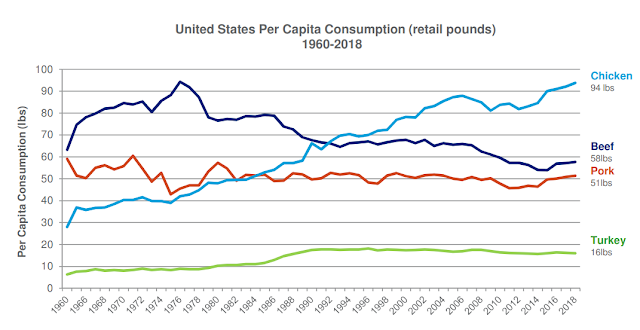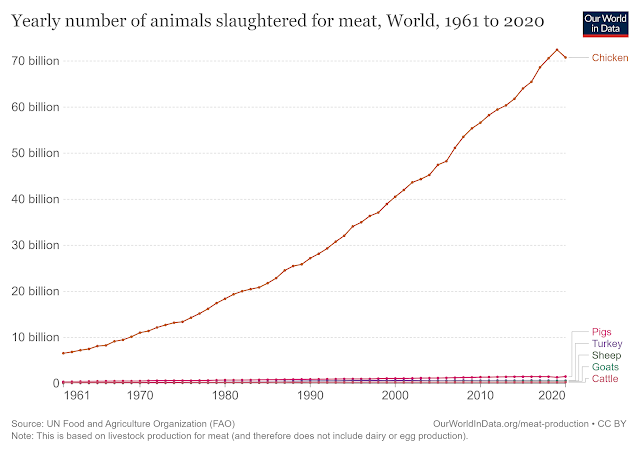From the full draft of Losing My Religions:
–Malcolm Gladwell, The Bomber Mafia
I had a dream last night that I was the guest on a podcast being recorded before a large live audience – think NPR’s “Wait, Wait, Don’t Tell Me.” (Anne and I saw an episode of “Wait, Wait” being recorded in a large sold-out venue in Phoenix. The show started late and Peter Sagal apologized: “But it took a while to get every liberal in Arizona in here.”)
Outside of my dreams, I’ve given quite a number of talks, and done a fair amount of radio and podcasts – even some television. One of the more memorable was on Kansas’ KFRM, where the “On the Front Porch’s” host Mr. Bauer grilled me for an hour. (You can listen at [oops, this is no longer online 11/23] – but be warned, my voice is … not melodious.) At the end, though, he admitted that if meat could be produced more efficiently – i.e., without animals, or as he put it “cut out the middleman” – then we should do that. After the recording, Mr. Bauer said he thought our conversation was great and was going to submit it for some award.
from 2014
With all the needless suffering in the world, it can be easy to fall into the mindset of “We have to act now!” and “Do something, do anything!” But our actions might have unintended consequences that actually make things worse. Here is an example from animal advocacy.
Let’s say we have developed what we think is the most powerful pro-veg argument ever, and we present it to ten people. Incredibly, five of them stop eating animals entirely. The others decide to “eat better” by following the mainstream suggestions of their doctor and give up red meat.
We might think, “Fifty percent conversion rate? That must be the way to go!” This is how I used to think – I only focused on the successes. But after years, I realized that being concerned with promoting my personal diet had blinded me to the important question:
How do my actions actually affect animals?
Every year, the average American eats twenty-three birds, a third of a pig, and a tenth of a cow. [Edit: In 2022, it will be closer to 25 chickens.] It currently takes about 193 birds (chickens + turkeys) to provide the same number of meals as one steer. (On average, people eat more poultry per meal than red meat.) It takes fifty-six birds to equal one pig.
So before our brilliant presentation, the ten people in the audience consumed a combined 234 factory-farmed land animals every year. After our presentation, the same ten – including the five who joined our vegetarian club – eat 296 land animals per year. This is because even though our argument convinced fully half of them to stop eating animals entirely, the others replaced their red meat intake with birds in order to eat better. And more “environmentally friendly.” And to spare those adorable cows.
Moving from red meat to chicken is well-documented, and red-meat reducers eat much, much more chicken. For example, in the largest recent study, those who consumed the lowest amount of red meat ate fifty percent more chickens than those who consumed the most red meat. We’ve also seen this on the ground; as meat consumption in Germany went down, the number of animals slaughtered went up.
The facts seem pretty darn clear: Anything that might possibly lead anyone to cut back on red meat will cause more animals to suffer.
Yes, we all know people who have gone veg for health reasons. As vegetarian advocates, we are obviously in a position to hear from them. But only looking at vegetarians doesn’t begin to show the full impact of any argument. The error is thinking the “health” vegetarians we know are a true sample of society. They aren’t. Rather, they represent a small self-selected sub-sample.
History shows that eating fewer large animals and more small animals for health reasons isn’t a made-up, worst-case scenario. It has been a key driving force for the suffering and slaughter of billions and billions of birds. Just look at any graph of animals killed in the United States: As the consumption of mammals declined, the slaughter of chickens skyrocketed.
Also check out the trend globally:
This is one of the reasons we should avoid any argument that could, in any way, support the general move toward giving up red meat. Every person who decides to “eat better” offsets the good accomplished by a new vegetarian.
In other words: We shouldn’t repeat anti-meat arguments. Rather, we should promote anti-suffering and pro-animal arguments.
Obviously, it feels good to say: “Vegans have lower rates of disease X.” But the point shouldn’t be to feel good. We shouldn’t be out to justify or glorify our choices. Our goal should be to keep as many animals from suffering as possible.
Of course, advocates can claim eating birds is bad for everyone’s health and the environment. Putting aside the veracity of those health and environmental claims, this simply isn’t the way the world works. People don’t accept what any advocate says as the gospel truth. Rather, they combine what they hear from all sources, paying more attention to what their doctor and friends say. On top of this, people generally give much more weight to advice that leads toward what they want to do – i.e., continuing to eat the familiar and convenient foods that their friends and family eat.
More importantly, we simply don’t make decisions based on what is “perfect” for our health or the environment. None of us, vegans included, exercise the optimal amount, sleep the optimal amount, floss every day, work while walking on a treadmill, give up our car, and donate until we’re living in poverty. With very few exceptions, we follow our habits and peers. For most people – not a self-selected vegetarian sub-sample – if people change anything, they do something somewhat “better.” And for nearly everyone, that means eating chickens instead of cows.
In other words, no matter what advocates claim is true, people will react from where they are, based on what they’re used to and with an eye for what they want. No matter how strong we think our arguments are, no matter how noble our intentions or how passionate our desires are, when we advocate without considering human nature, history, and numbers, we cause more animals to suffer and die.
If we want to help animals, we need to actually advocate for animals.


No comments:
Post a Comment